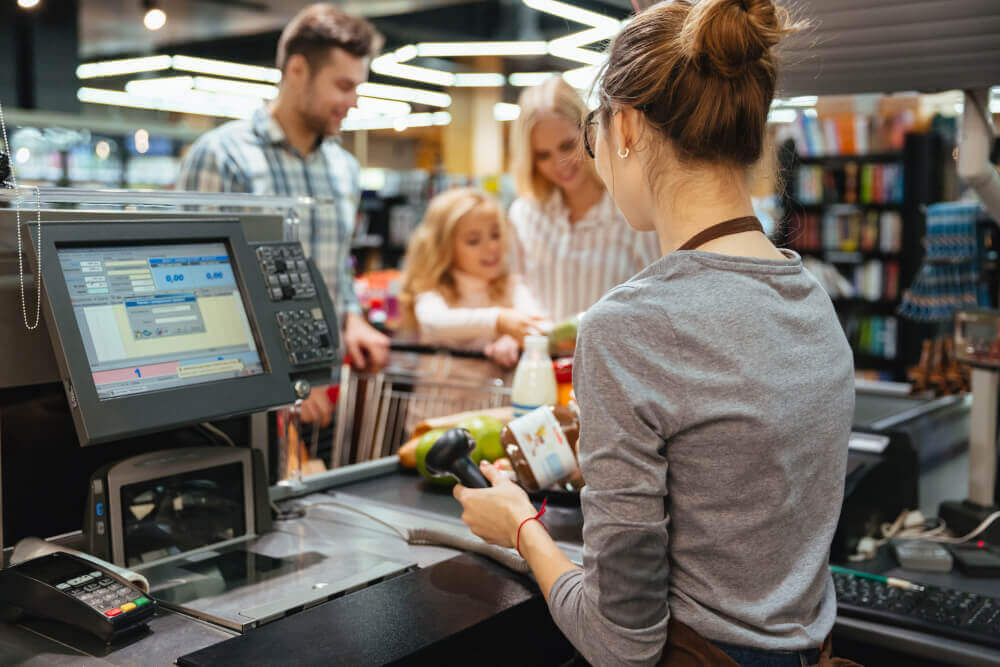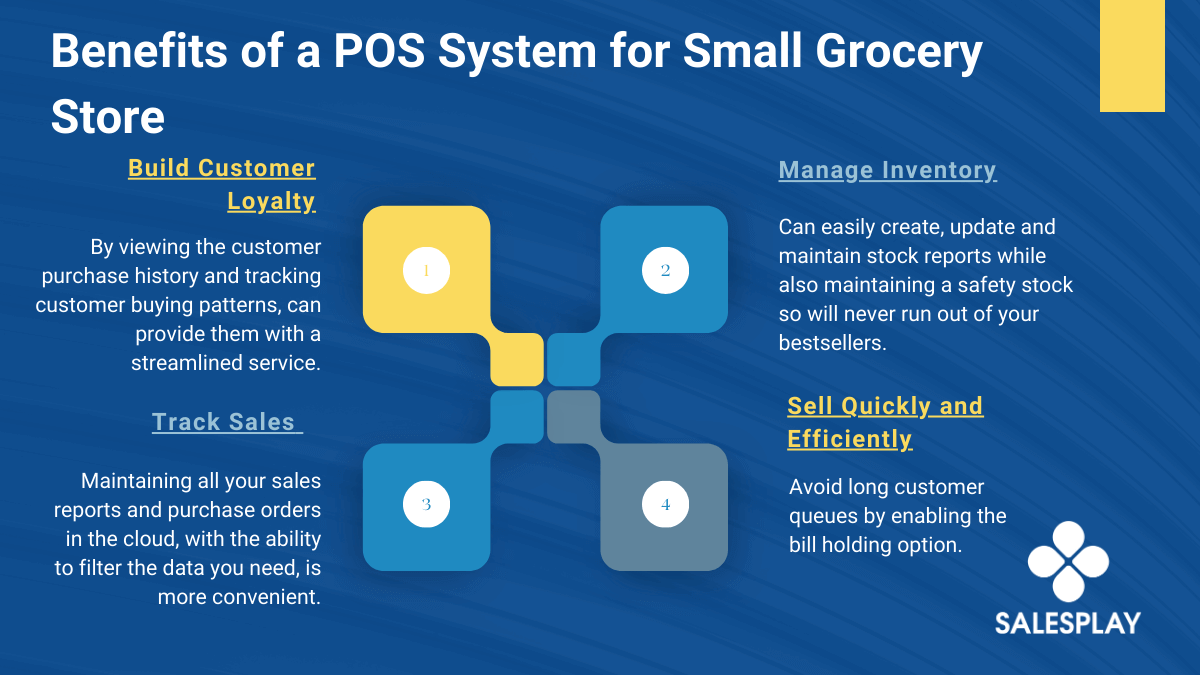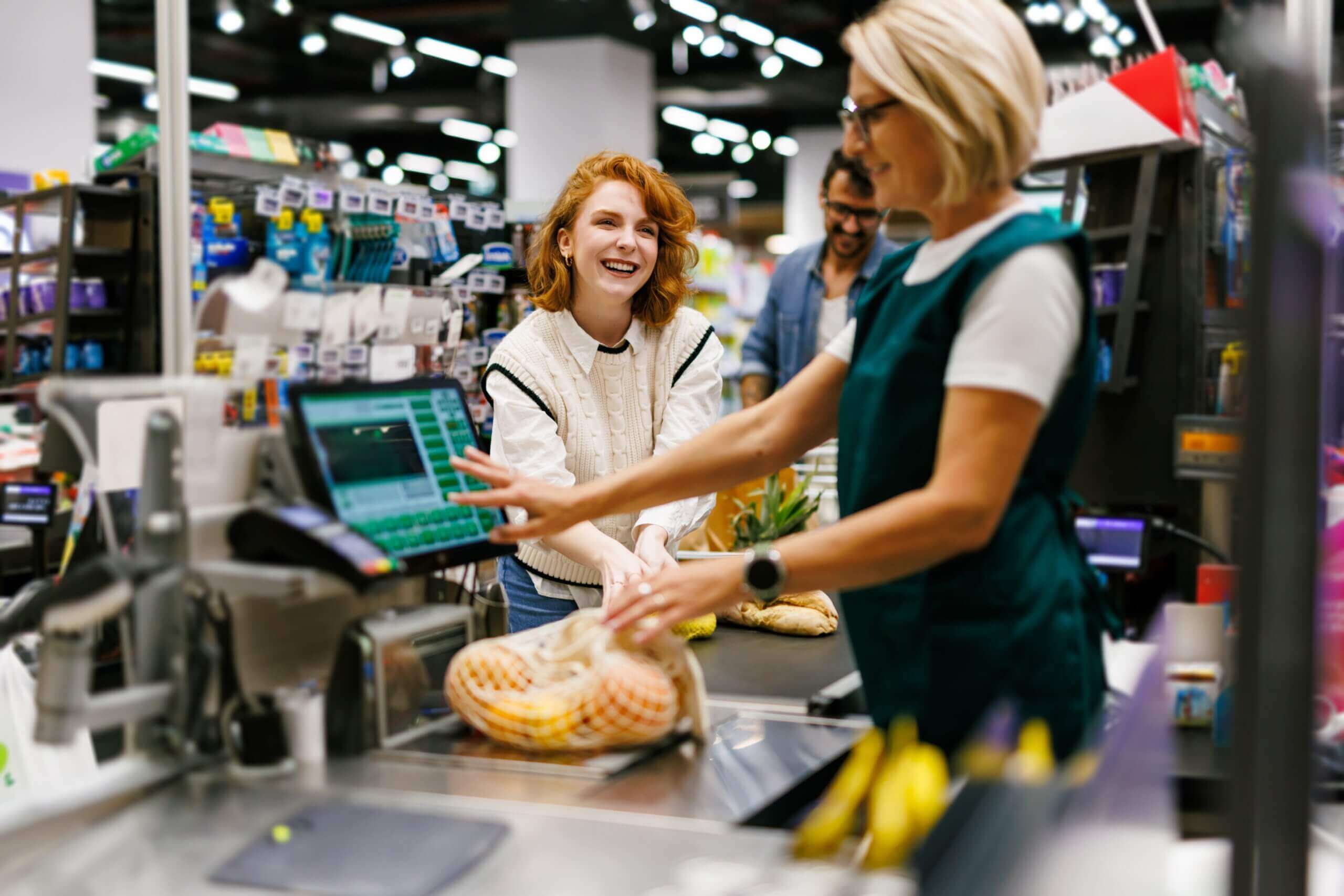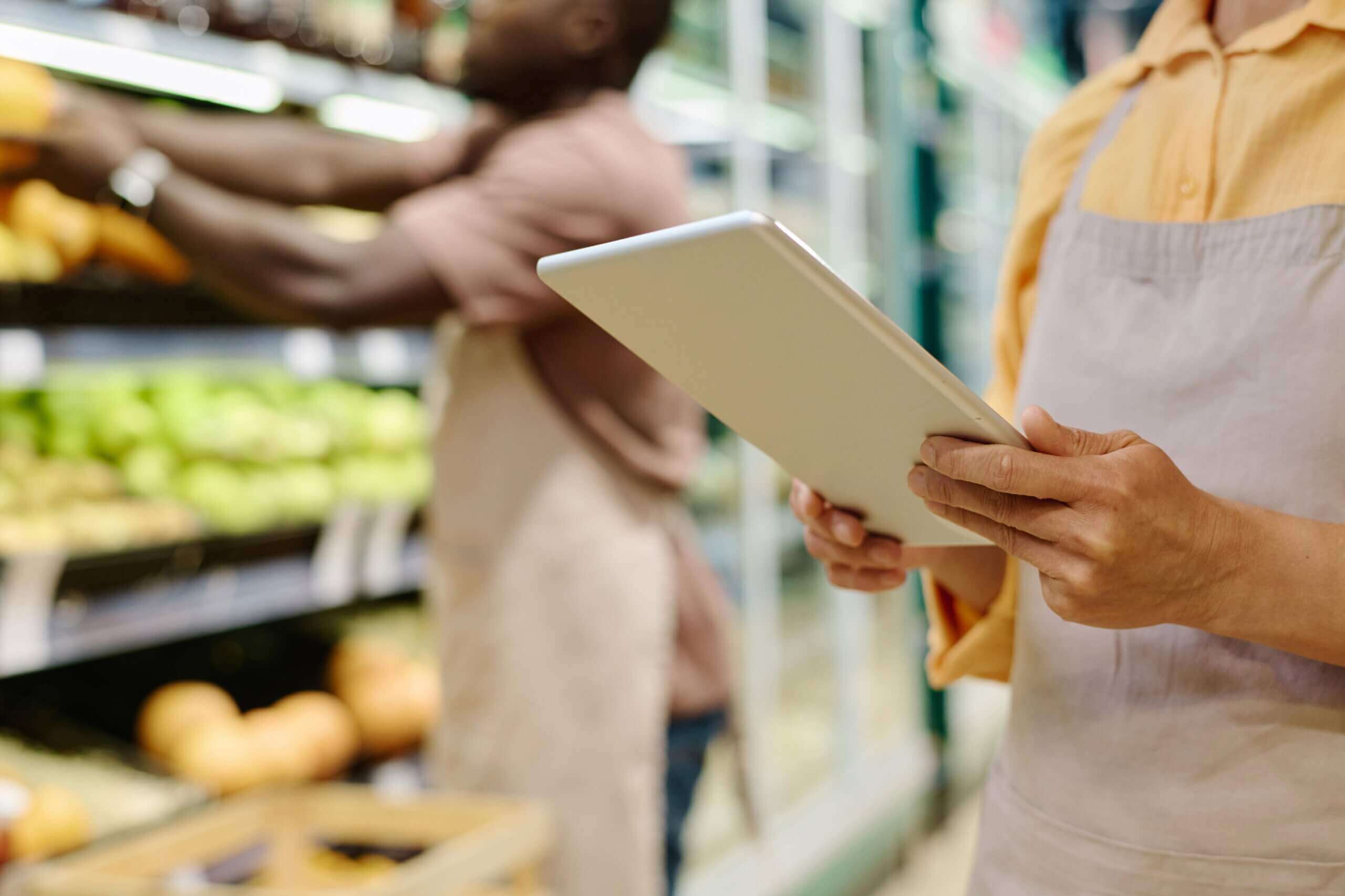A POS system for small grocery stores digitizes all your business processes. It brings everything under one platform, accessible from anywhere. As small businesses go digital, organizations must adapt to new ways to stay ahead of their competitors.

If you are a grocer, cloud-based grocery POS software is your ideal choice. The low investment and setup costs are among the main reasons why small and medium-sized businesses, such as grocery stores, cafes, and restaurants, prefer cloud-based POS systems. All you need to set it up is an electronic device with internet access. This reduces the need for bulky traditional POS systems, saving you both money and space.
Your grocery store may be small, but your operations aren’t. Keeping track of items, handling payments, and analyzing sales manually can get overwhelming. POS software helps you stay organized, serve customers faster, and avoid stock issues.
You might wonder, 'Do I need this technology for my store?' The answer is a resounding yes! Here are the top 4 benefits of POS software for Small Grocery Stores:

A grocery POS system will allow you to create, update and manage all your products under different categories and list them on the main screen. You can also avoid long customer queues by enabling the bill holding option.
Most importantly, a good system will record credit and cash sales and track past receipts with ease. If you are running a chain of small grocery stores, each store will have its unique sellers and fast movers.
Hence you should be able to manage these items across all the stores based on their demand. Track your product movements so you may never run out of stock.

Keeping tabs on your existing stock every time you make a sale doesn’t have to be a manual process anymore. You can easily create, update and maintain stock reports while also maintaining a safety stock so you will never run out of your bestsellers.
With features like real-time stock tracking, managing multiple inventories at different locations is now possible with a POS system. But that's not all—there are features that alert you to low stock and approaching expiry dates, allowing you to bulk order necessary products. If you are a grocer with two or more branches, transferring goods between shops has just become easier.
Discover some of the techniques small stores use to manage inventory.
To run any business successfully, understanding the sales and profits is the key. Further, maintaining all your sales reports and purchase orders in the cloud, with the ability to filter the data you need, is more convenient than keeping a back office with physical files, especially if you have stores at multiple locations.
In addition to generating sales reports, tracking daily revenue, net profits, and gross profits provides better insight into the daily operations of your store. This kind of information is incredibly helpful in identifying your best-selling products.
When you are running a small grocery store it is normal to have recurring customers from the neighborhood. By viewing the customer purchase history and tracking individual customer buying patterns, you can provide them with a streamlined service including personalized discounts and offers.

Building a customer database with contact details and preferences enables you to provide a better shopping experience. A valued customer is a recurring customer. The POS system for small grocery stores will also allow you to run a customer loyalty program where customers can redeem their accumulated points using a loyalty card.
Explore 7 innovative small grocery store ideas to maximize profits and transform your small grocery store into a success story.
The market is filled with POS systems, but not all are suitable for small grocery stores. Here's a step-by-step guide to choosing the best one.
POS systems range from budget-friendly to high-end options. Look for a system that offers great value without unnecessary bells and whistles.
Does it work with your existing hardware, like receipt printers or barcode scanners? Make sure there’s no need for costly upgrades.
As your business grows, so will your needs. Choose a POS system that can scale with you—whether it’s adding new features or managing multiple locations.
Tech glitches can happen. Reliable 24/7 customer support ensures you’re never stuck with a non-functioning system during peak hours.
Still not convinced? Let’s look at how other small grocery store owners benefit from POS systems.
A small grocery store in a bustling neighborhood reduced checkout times by 50% after adopting a POS system. Customers were thrilled, and sales grew as more people chose the store for quick shopping trips.
Another store owner was tired of running out of popular items. Their POS system’s real-time inventory updates made restocking a breeze, improving customer satisfaction and boosting sales.

A store implemented a loyalty program through their POS system, offering discounts on repeat purchases. This simple feature brought in more regulars and increased revenue by 20% in six months.
Explore more techniques to run a successful grocery store and stay ahead of the competition.
A POS system for small grocery stores isn’t just a fancy gadget; it’s a necessity in today’s fast-paced retail world. It simplifies operations, boosts efficiency, and helps you provide top-notch service. Whether you’re managing inventory, speeding up checkouts, or creating loyalty programs, a POS system has your back.
Investing in SalesPlay POS will transform your grocery store into a powerhouse of efficiency, helping you stay ahead of the competition.
SalesPlay POS is a cloud-based POS system that has several attractive features like separate employee access, loyalty programs for customers, and maintaining credit sales and purchases, in addition to the above benefits.
If you're a grocer looking for a system to streamline your operations, SalesPlay is your ideal choice.
Ready to upgrade your small grocery store with a POS system?
Contact SalesPlay POS today!
A POS (Point of Sale) system in a grocery store is like the heartbeat of the checkout process. It’s the tech behind the scenes that makes transactions smooth and efficient.
At its core, a POS system helps process payments, whether cash, card, or mobile payment. But it does so much more! It tracks inventory, records sales, and even gives store managers insights into customer preferences.
So, if you’ve ever wondered how stores know exactly when to restock those apples or how long your favorite cereal has been on sale, thank the POS system! It makes grocery shopping not only easier for you but also for the store.
With barcode scanners, touchscreen interfaces, and inventory tracking, grocery store POS systems ensure everything runs like clockwork, from the moment you scan your items to the final payment.
Choosing a POS for your small grocery business can be easier than it sounds! Here’s what to keep in mind:
Start with simplicity—grocery stores are busy, so you’ll need a system that’s quick and easy to use. Make sure it can handle high transaction volumes and speed up checkout times. You’ll want a POS that supports barcode scanning for faster processing.
Next, check if the system supports inventory management. This is crucial for tracking stock levels and making restocking easy. Integration with your accounting software is another bonus!
Also, consider features like customer loyalty programs or discounts, which can help encourage repeat business. Don’t forget about reporting—detailed sales reports will help you analyze trends and plan for growth.
Finally, think about your budget. Choose a POS that offers great value for its features without breaking the bank!
When it comes to POS (Point of Sale) systems, the cost per month can vary widely. On average, you might pay anywhere from $50 to $200 per month, depending on the features and complexity of the system.
Some POS providers have Add-ons based pricing plans, so you can choose one that suits your business needs. Additionally, keep in mind that there could be extra fees for hardware, software updates, or payment processing.